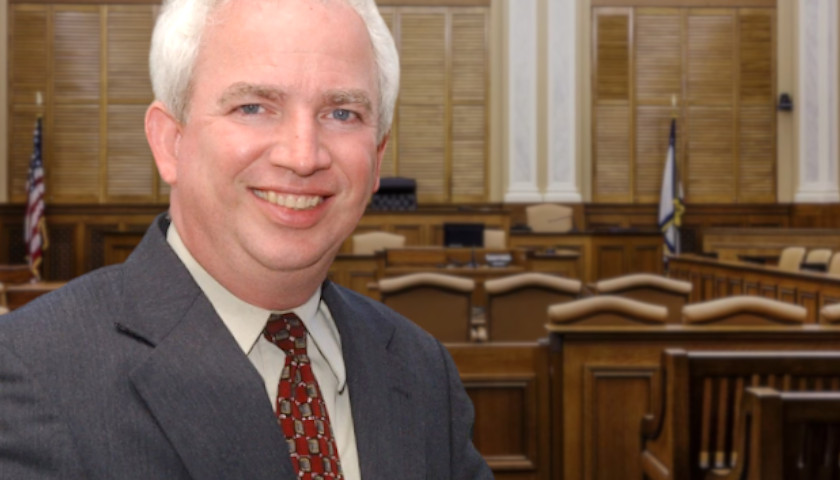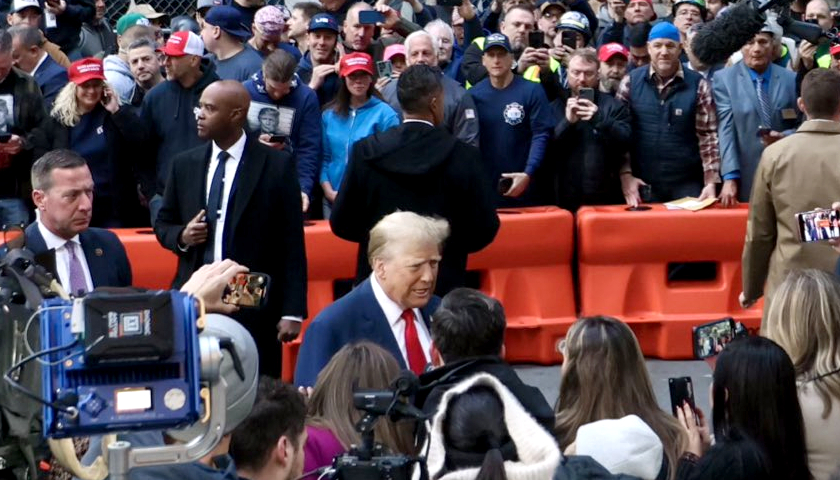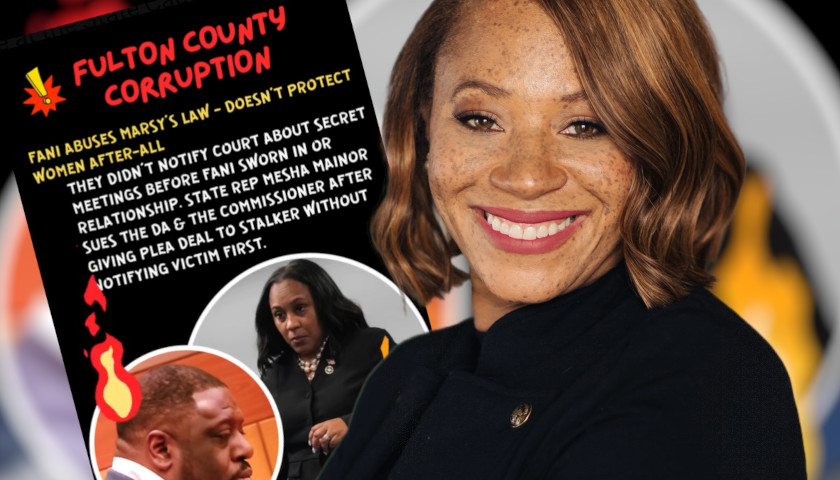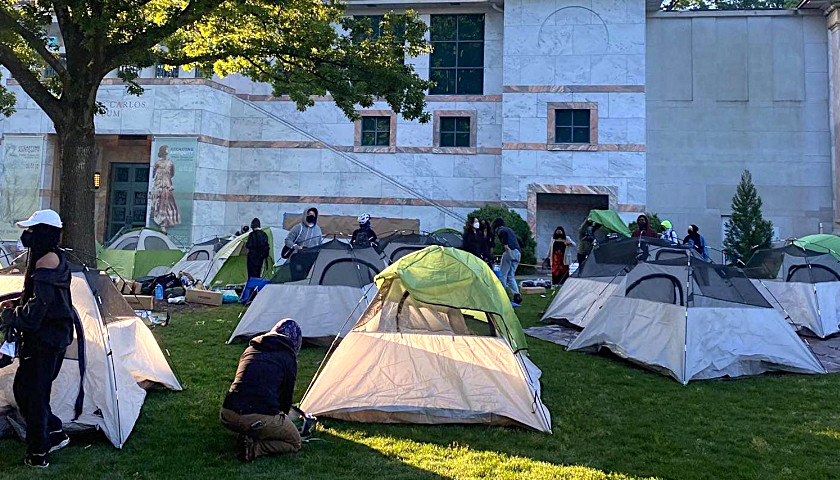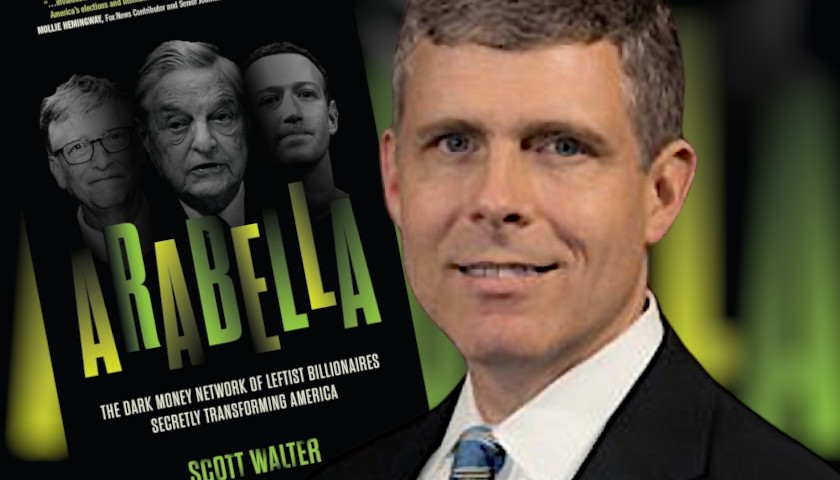The second week of the State Bar of California’s (SBC) disbarment trial against Trump attorney John Eastman resumed on Thursday after a brief break due to one of the attorneys becoming sick. Throughout much of the day, SBC attorney Duncan Carling grilled Eastman about his allegations of illegal activity occurring in the 2020 election.
Carling repeated many of Eastman’s claims from the pleadings he filed in cases like Trump v. Raffensperger, prompting First Amendment attorney Mark Fitzgibbons to tweet, “The CA Bar lawyer is actually doing more to convince us the election illegalities merited what Prof Eastman recommended to his client. Courts rejecting cases on standing without EVER hearing evidence did a terrible injustice to the Constitution, and disenfranchised voters.”
He added, “It would almost be malpractice to ignore those election irregularities and activities that are suspicious on their face, I’d think.”
 Judge Yvette Roland began the proceedings by stating that she would likely refuse to allow many of Eastman’s proposed witnesses to testify because their names were submitted after the pretrial statement was filed. Judges have the option to allow witnesses to testify whose names were submitted late because there may have been a reason a party did not know about them until later. Eastman’s witnesses include State Senator Wendy Rogers (R-Flagstaff) and former legislator Mark Finchem. Roland has excluded several of Eastman’s witnesses already. Eastman’s legal team filed a 473-page pleading to respond to the SBC’s Motion in Limine which explained why the witnesses were necessary.
Judge Yvette Roland began the proceedings by stating that she would likely refuse to allow many of Eastman’s proposed witnesses to testify because their names were submitted after the pretrial statement was filed. Judges have the option to allow witnesses to testify whose names were submitted late because there may have been a reason a party did not know about them until later. Eastman’s witnesses include State Senator Wendy Rogers (R-Flagstaff) and former legislator Mark Finchem. Roland has excluded several of Eastman’s witnesses already. Eastman’s legal team filed a 473-page pleading to respond to the SBC’s Motion in Limine which explained why the witnesses were necessary.
Carling began the cross-examination by asking Eastman (pictured above) about a pleading he filed in the 2020 election challenges citing a poll that found that 47 percent of Americans believe the election was stolen. He spent a lot of time asking Eastman about the difference between voter fraud, election fraud, and illegal activity, something he’d already gone over with him extensively on Friday. Roland did not stop him from going over the questions again.
Carling attempted to get Eastman to admit he said there was fraud in the Georgia 2020 election, but Eastman pushed back and explained that while he said there was illegal activity, it might not necessarily rise to the level of fraud. For example, Eastman said when Georgia officials indicated to observers that they could go home since there would be no more ballot counting at the State Farm Arena but then resumed counting at night without informing them, that was illegal. “The issue was not whether there were illegal ballots, the issue was whether they were illegally conducting the counting,” he stressed.
Eastman discussed how at the beginning of the evening, there appeared to be over 16,000 ballots missing, but they appeared to have shown up overnight. He also discussed a bag of ballots seen under a table on video that night.
“The issue is whether they were processed out of view as state law requires,” he said.
Carling asked him why he thought ballots were counted twice at the arena. Eastman explained that since every precinct has different races, they have different key codes on the ballots—a subsequent audit found over 5,000 ballots that were counted in the same sequence.
Carling repeated many of the questions, with no objection from Roland, prompting Fitzgibbons to tweet, “‘Asked and answered’ is an evidentiary objection for a reason, which is to prevent abuse of a witness.”
A courtroom observer tweeted, “This line of questioning has been going on for 2 1/2 hours. How many times is Bar attorney going to basically ask the same thing. Hopefully he will figure out he can’t trick John Eastman into saying something incriminating because he did nothing wrong.”
Carling spent significant time questioning Eastman about using an affidavit in a legal pleading challenging the 2020 election from Matt Braynard, a voter data analyst. Carling accused Braynard of not being an expert since he didn’t have an academic background, and it was his first time serving as an expert witness. Eastman retorted that the Rules of Evidence allow for experts to have practical experience, not just academic experience and that all experts, at some point in their careers, must testify for the first time. Braynard’s background is in voter data, and he “founded and led the Voter Integrity Project to discover illegal ballots and other election anomalies.”
Carling tried to get Eastman to admit he agreed with certain numbers of voters or ballots that Braynard referred to in his affidavit, but Eastman called him out on mischaracterizing them. Eastman pointed out that Braynard used qualifying language like “as many as” and “subject to further data” when he made his conjectures about numbers, such as how many voters had vacated their addresses. The judge did not admonish Carling for the misleading characterizations.
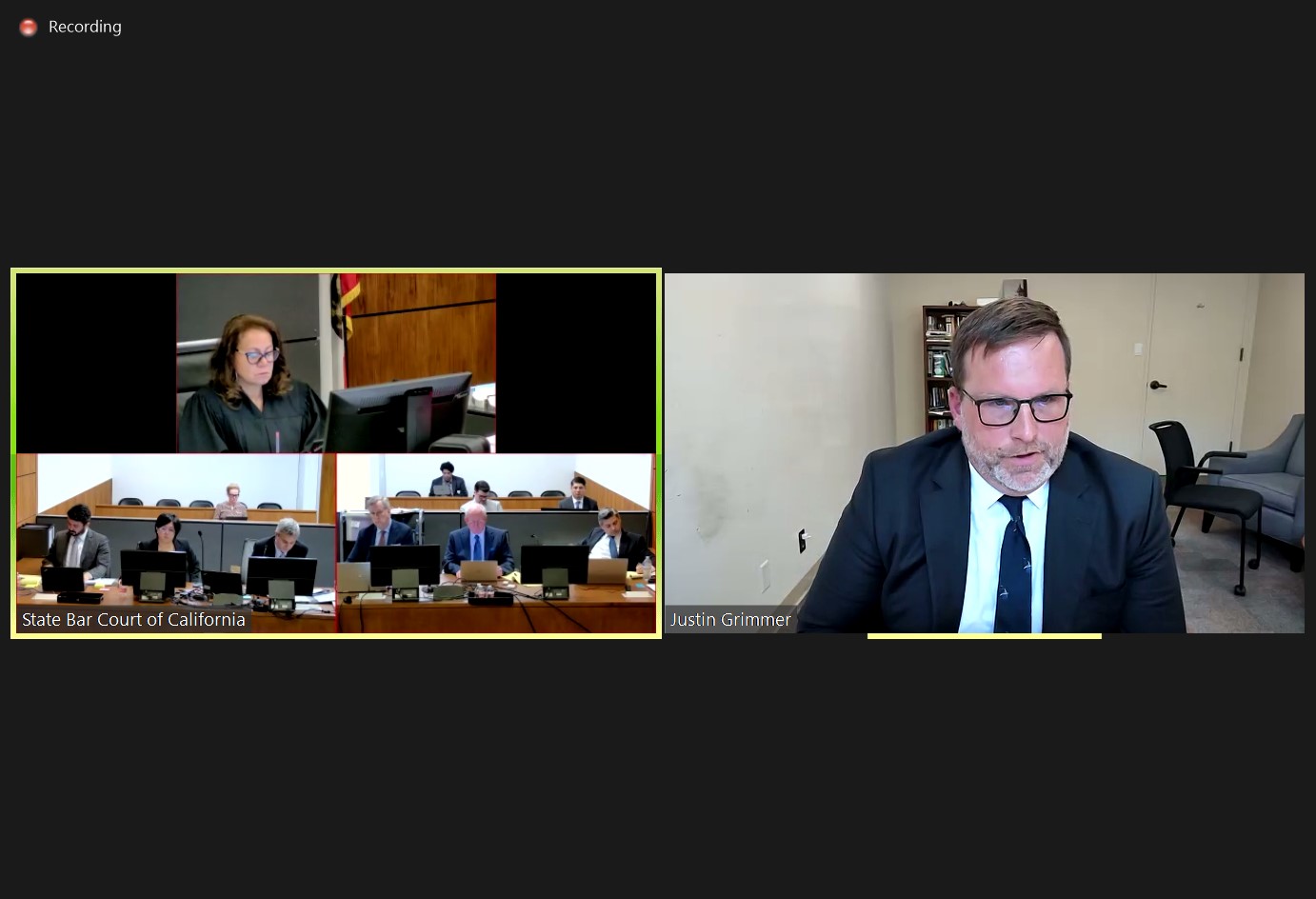 Next, the SBC brought Justin Grimmer to the witness stand, a political science professor at Stanford University and senior fellow at the Hoover Institution. He published numerous articles claiming no election fraud, including a research paper asserting “No Evidence for Voter Fraud” in the 2020 election.
Next, the SBC brought Justin Grimmer to the witness stand, a political science professor at Stanford University and senior fellow at the Hoover Institution. He published numerous articles claiming no election fraud, including a research paper asserting “No Evidence for Voter Fraud” in the 2020 election.
His resume includes frequent mentions of “democracy” and articles with titles like “A Women’s Voice in the House: Gender Composition and Its Consequences in Committee Hear-ings,” which he published in 2022.
During his testimony, Grimmer said the testimony of voters who observed anomalies during the 2020 election, labeling data analysts like economist Charles Cicchetti who took their accounts into consideration as making a “common statistical flaw” since they couldn’t conclusively prove the fraud. Grimmer said it was flawed to assert fraud since he said he believed there was only a small probability of fraud or “vote spikes.”
He defended the huge increase in votes that Biden received in comparison to Hillary Clinton’s share in 2016. He said there was a “blue shift” later on while counting ballots because the big cities are slower counting the ballots, so their results come in later. When asked about the acceptance rate changing for ballots accepted after signature verification, he claimed it must have been due to a change in the law in 2019, HB 316, not due to relaxing signature verification standards. He did not explain how he knew this.
He attempted to explain why Biden received a huge number of votes. He said it was because the votes came from large counties. He said there was a shift in the large counties towards Biden in 2020, known as a “uniform swing.” He said he looked at the data for early ballots in Ingham County, Michigan, and found no evidence that algorithms were changing the returns in a shift to Biden.
Roland has a history of donating to Democrats, including while on the bench as recently as March. Read the accounts from day one, day two, day three, and day four. The trial is livestreamed and will be suspended until August 22-25 after Friday’s proceedings.
– – –
Rachel Alexander is a reporter at The Arizona Sun Times and The Star News Network. Follow Rachel on Twitter. Email tips to [email protected].

